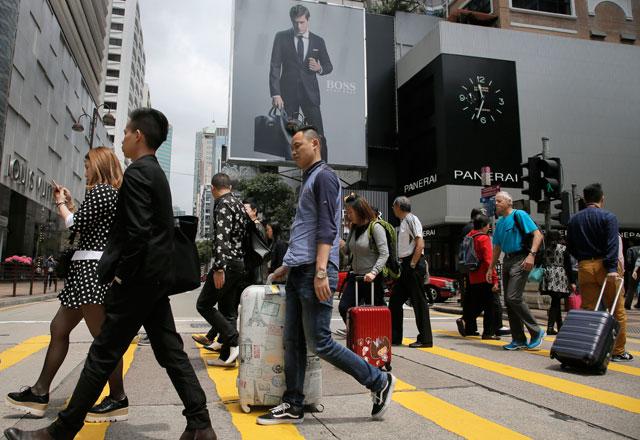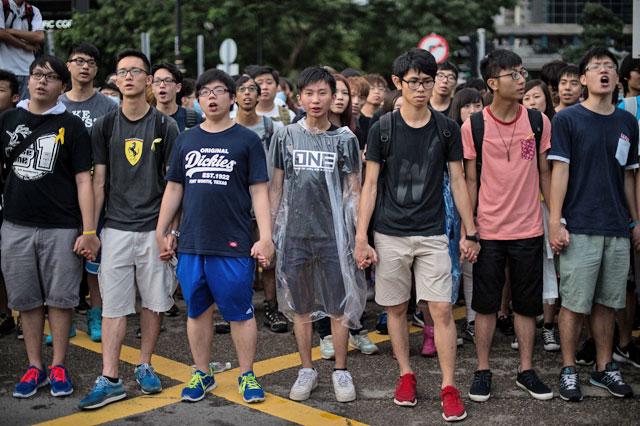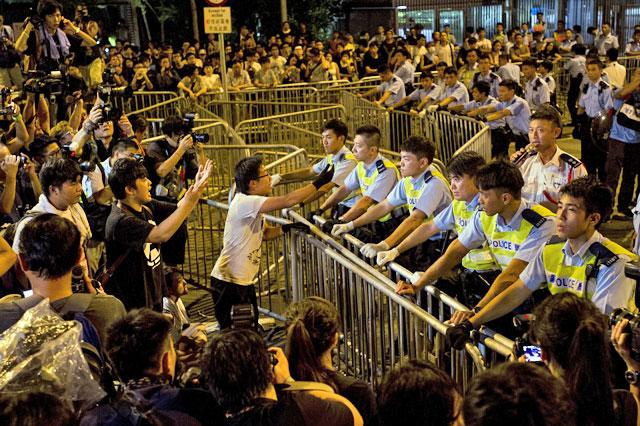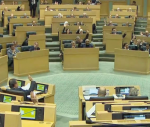You are here
Beijing limits visits by mainland Chinese to Hong Kong
By AFP - Apr 13,2015 - Last updated at Apr 13,2015

HONG KONG — Beijing has scrapped unlimited entry to Hong Kong for mainland Chinese visitors whose voracious shopping for everything from baby milk powder to iPhones has emptied stores and stoked bitter resentment in the protest-hit city.
Tension remains high in the southern Chinese city after two months of pro-democracy street rallies were cleared in December with no sign of concessions from the authorities.
An influx of millions of Chinese visitors to Hong Kong has become the latest source of strain, prompting protests by residents who are hostile to China's increasing influence. The protests have led to clashes with police and arrests.
"Anything that increases tension between Hong Kong and mainland society is not tolerated," city leader Leung Chun-ying said Monday as he confirmed a limit on the number of visits which mainlanders from Shenzhen can make.
Mainland authorities have now stopped visas that allow residents from the border city of Shenzhen to make unlimited trips to Hong Kong, he said, restricting them to one visit per week.
Leung said the new restrictions were suggested by the Hong Kong government and adopted by Beijing, adding it will affect about 4.6 million travellers, or nearly 10 per cent of the annual 47 million mainland visitors.
The decision to restrict mainlanders' entry was aimed at curbing the practice of "parallel trading" in which visitors buy up prized goods such as baby formula in Hong Kong and resell them in China's border towns to avoid tariffs.
Critics in the semi-autonomous city have said mainland visitors also push up prices, increase delays at border crossings, clog up public transport and behave badly.
China's state-run Xinhua news agency said Monday the policy arose from concerns over "growing pressure" on the city's border due to a surging number of travellers.
Leung admitted the move would not completely end parallel trading, because Hong Kong residents may become parallel traders, adding the government would continue to crack down on illegal activities.
Hong Kong has a separate customs jurisdiction from mainland China, which imposes tariffs on foreign imports.
Concern over how retailers may be affected dragged some share prices down Monday.
Shares in cosmetics retailer Sa Sa International dropped 6.24 per cent to HK$4.06 ($0.52) while Chow Tai Fook, which sells jewellery, fell 2.93 per cent to HK$8.95.
Pro-business lawmaker Jeffrey Lam Kin-fung said plenty of small businesses may also suffer. "Several thousand people may lose their jobs," he said late Monday.
But a resident of Sheung Shui, one of the city's border towns, welcomes the policy: "They [parallel traders from mainland] are always pushing their carts around. Their luggage may roll over your feet. The policy can definitely reduce such nuisance," he told Cable TV news.
Some mainland netizens however branded the policy as unfair.
"One country two systems. Hong Kong people returning to China should have weekly limits to meet the requirements of equal status," a netizen wrote.
Another wrote: "Hong Kong [people] really are hypocrites [wanting wealth while not wanting tourists]."
Leung also warned against further protests targeting mainland visitors, describing them as "unruly" and "counter-productive".
Hong Kong opened up to Chinese tourists in 2003 in a bid to revive its economy after an outbreak of the respiratory disease SARS, allowing mainland Chinese to visit as individual travellers rather than as part of an organised tour.
Related Articles
A student leader vowed Wednesday to step up Hong Kong's huge pro-democracy protests — including a possible occupation of government offices — unless the city's leader steps down within a day, as support for the movement grew around the world.
Pro-democracy protests in Hong Kong have handed China's communist leadership a thorny political dilemma.
Tensions in Hong Kong soared Thursday after police were seen unloading boxes of tear gas and rubber bullets close to the city's besieged government headquarters as the authorities urged pro-democracy demonstrators to disperse "as soon as possible".

















